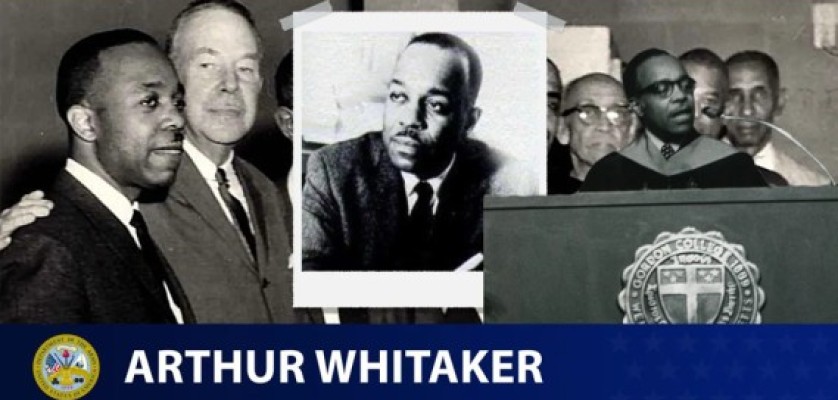The Rev. Dr. Arthur Whitaker served in the military to fulfill an Army draft but later found his service to be a starting point for his civil rights activism work. He had been confident in a desire to pursue ministry, but in his service, he learned the power of justice and standing up for one’s beliefs, not just on a battlefield but also in his own community.
Whitaker was born in July 1921 in Malden, Mass. Growing up in Malden, he felt the effects of racism in a segregated schooling system but did not feel empowered to spark change in his community until serving in World War II. In March 1943, Whitaker was drafted into the Army in an all-African American division under the leadership of Gen. George S. Patton. Throughout the war, he traveled across the globe, earning four battle stars in Italy, Germany, Tunisia and Central Europe. He was awarded a World War II Victory Medal and a European — African — Middle Eastern Campaign Medal. He also took up a role leading the Ninth Calvary Army Band, playing first trumpet. He was honorably discharged as a technical sergeant on Jan. 12, 1946.
That same year, Whitaker enrolled at Gordon College in Wenham, Mass. He studied theology and graduated in 1949. He continued his education at Harvard Divinity School, where he received his ordination in 1951 and a bachelor’s in sacred theology in 1952. Whitaker also received a master’s in sacred theology from Andover Newton Theological School. He then moved his family to Rochester, New York, where he became minister at Mt. Olivet Baptist Church. From 1973 to 1978, he and his family moved back to the Boston area as he received his doctoral degree in ministry from Andover Newton Theological School; he also became a licensed psychologist in 1973. This allowed him to teach and practice as a counselor at the Harvard Divinity School until his retirement from teaching in 2001. In a 1978 interview with the Syracuse Herald, Whitaker said, “All my pronouncements as a minister, whether from the pulpit or elsewhere, have been aimed at finding a better way of life for all Americans — white and Black alike.”
Whitaker’s time in the Army taught him lessons that he applied to activism in Massachusetts and New York. In the latter, his role in civil rights became most prevalent. He worked with his friend from graduate school, the Rev. Dr. Martin Luther King Jr., to bring equality to his communities and nation. Whitaker used his rhetorical skills, connections and education within ministry to help fight against racism. His education and rapport led to his position as executive minister at the American Baptist Churches Office in Syracuse, N.Y. There, he met with senators and congressmen to support certain causes, such as fair employment and housing, desegregating the schooling system in Boston in the 1970s and advocating for racial equality within the military.
He wrote many books, sermons and commentaries regarding racial injustice, including “Anatomy of a Riot,” written in response to the Rochester riots in 1964. After King’s assassination, Whitaker worked with legislators and the governor of New York to have King’s birthday remembered as a statewide holiday; this led to King’s birthday being recognized as a federal holiday.
Whitaker died in October 2007 in Brockton, Mass.. He was 86.
We honor his service.












